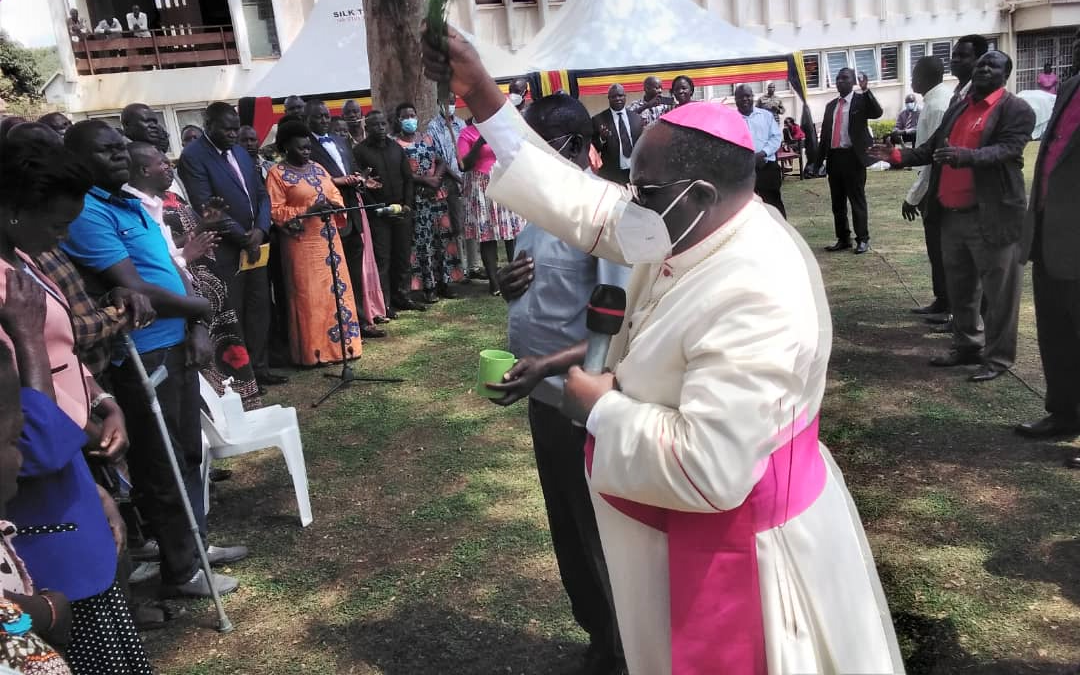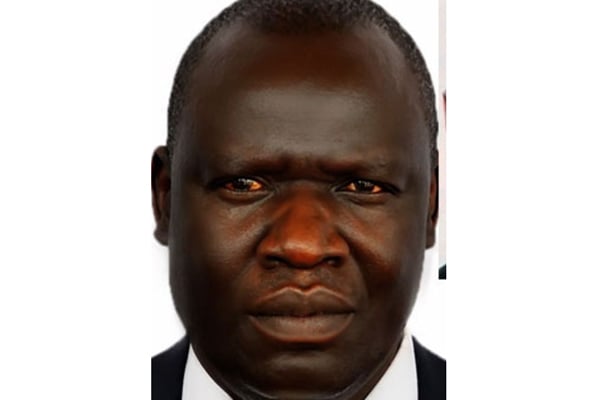Prime
Will prayer reunite the Jopadhola, Iteso?

Tororo Catholic Archbishop Emmanuel Obbo blesses Tororo District leaders during breakfast prayers held to reunite the two tribes last week. PHOTO/JOSEPH OMOLLO.
What you need to know:
- The conflict between the two groups dates as far back as before Independence, and previous government attempts to unite them have not borne fruit.
Religious leaders have renewed efforts to reunite the Jopadhola and Iteso communities in Tororo District after failed efforts by the government.
The clergy have started by organising breakfast prayers, which bring together leaders, elders and locals from the two communities that have been at loggerheads for several decades now.
The tension between the two communities started before Independence in 1962 and led to demarcations, leaving West Budama for Jopadhola and Tororo County for Iteso community.
Despite the separation, the tensions between the two groups escalated and in 1998, the Iteso community demanded for a district status, something the government is yet to grant them.
During the breakfast prayers at the district headquarters last week, the Vicar General of Bukedi Diocese, Rev Samson Ayide, said leaders from both sides need to go on their knees, repent and reconcile.
“The leaders should repent before God and admit their mistakes for the good of Tororo,” he said.
Mr Ayide said as religious leaders, they will use prayer to save the people since other interventions seem to have failed. He said prayer breakfasts are planned to intercede for unity in the district.
“We want God to touch politicians from across the divide to stop spreading the message of disunity, which has led to enemity between the children of God,” he said.
Tororo Catholic Archbishop Emmanuel Obbo said as religious leaders, they will continue engaging leaders to stop tribalism and work together for economic growth.
“Our message as the church is very clear; tribalism must stop. The acts of promoting divisionism and sectarianism must end,” he said.
President Museveni has on several occasions preached unity and advised the elders from both communities to spearhead reconciliation.
Sheikh Ibrahim Yusuf Asante, the district Kadhi, said leaders must exercise openness and speak the truth to their communities concerning the dangers of divisionism.
“You cannot have reconciliation and peace without truth-telling, justice and forgiveness. Our political leaders must be aware that whatever they are doing will be their legacy,” he said.
Politicians faulted
He said it’s unfortunate that whereas religious leaders have tried their best to preach about harmony and unity, the politicians continue to use the divide and rule to disorganise people.
Pastor Girado Olukol of Pentecostal Outreach Ministries International, who also chairs the council of bishops in the district, said prayer is a weapon that heals conflicts.
“We only call for commitment from the leaders from both sides. Peace will come if people admit their mistakes and seek for forgiveness,” he said.
State minister for Defence and Veteran Affairs Jacob Oboth Oboth said the intervention of the clergy will help to bring unity.
“We no longer want to see leaders in the district working in isolation along the tribal lines. It’s not beneficial,” he said. He noted that it’s unfortunate that leaders pretend to be loving one another when in church but change when out there.
Ms Sarah Achieng Opendi, the Tororo Woman MP, applauded the religious leaders for the initiative to rejuvenate harmony and unity among the two communities.
Mr Bernard Odoi Onen, the Eastern Youth MP, said prayer is important because it renews bonds of brotherhood.
“As young people, this is the time that we need to reunite and foster development other than being derailed in tribal issues that have continued to divide us,” he said.
Mr Max Ochai, the MP for West Budama North, said unity is urgent. “Its a miracle that all the MPs from Tororo can meet for such prayers, which could not happen initially,” he said.
Optimism
Mr James Opio, an opinion leader, said the intervention of religious leaders will likely yield results.
“The clergy should petition God to provide a lasting solution to the existing confusion hindering development in the district,” he said.
According to Tororo Chief Administrative Officer Dunstan Balaba, since the district started holding the prayer breakfast, there has been a tremendous change among the leaders.
“Tempers have reduced and I saw boycotting councillors coming back to council and since then, we have been having peaceful council meetings,” he said.
Mr Ali Okello, an elder and a businessman in Tororo Municipality, said the government effort failed because groups failed to compromise.
“The groups remained adamant to the government positions to date but the government was willing to reconcile them because continued divisionism affects government programmes,” he said.
The government had agreed to grant Tororo County district status but the location of Tororo Municipality remained a matter of contention as each group claimed it.
In 2018, the government sent a delegation led by then Lands minister Betty Amongi to the United Kingdom for a colonial map to establish the actual boundary of Tororo Municipality, but the findings have not yet been made public.
Background
The call for district status started in 1998. In 2005, President Museveni visited the area and the residents asked him for a district of their own. While addressing a rally at Mukuju County headquarters, an Iteso moved forward and ate a live rat to demonstrate that they had distinct cultural identity from the Jopadhola.
The government agreed to grant Tororo County district status but the location of Tororo Municipality has remained a matter of contention as each group claims it.




